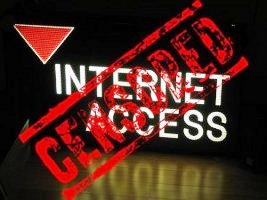Web Filtering And The I-Café Business
 Actually, regulation on web filtering for its pornographic content is not new to the internet café industry in the Philippines. There are many cities and towns in the country that have local ordinances with provisions mandating the Internet café owners to block pornographic sites so that their customers would not be able to access them. So you maybe wondering why I am against web filtering by ISPs as provided in the soon to become law entitled The Anti-Child Pornography Act. The succeeding discussion will explain my reasons for such stand on the issue.
Actually, regulation on web filtering for its pornographic content is not new to the internet café industry in the Philippines. There are many cities and towns in the country that have local ordinances with provisions mandating the Internet café owners to block pornographic sites so that their customers would not be able to access them. So you maybe wondering why I am against web filtering by ISPs as provided in the soon to become law entitled The Anti-Child Pornography Act. The succeeding discussion will explain my reasons for such stand on the issue.
The Internet café industry, as it is now, is already suffering from poor quality of service by the Internet service providers (ISPs). Aside from frequent disconnections, Internet connection speed advertised for i-cafés at say 3 Mbps (megabits per second) are in actual download tests averaging much less (not even 50% as-advertised).
The situation will become worse if the ISPs will be made to install the filtering as mandated by the soon-to-become law on anti-child pornography. Pilot testing on web filtering done in Australia showed that ISP performance would suffer network degradation of up to seventy (70%) if more accurate censoring will be performed. Details of the pilot tests done and evaluation of the results can be found at “Why the Tasmanian filtering trial is a failure“.
What does network degradation mean to i-café business? If the filtering by an ISP would result to say 50% slowdown of Internet connection, the logical repercussion would be the need for the café own to subscribe to higher speed thereby increasing his DSL subscription cost. He will need a higher bandwidth subscription in of to maintain the quality of service that his customers demand.
By the way, the House version of the soon-to-become law on anti-child pornography not only provide for filtering at ISP side. The congressmen also want the filtering done at internet café establishments, private and public educational institutions and public and private offices. The House version provide that local government unit (LGU) of a town or city where an Internet café is located shall have the authority to monitor and regulate the establishment and operation of the same or similar establishments in order to prevent violation of the provisions of the law.
What if the LGU say that the current practice of blocking unwanted websites using the free OpenDNS is not appropriate and allow only the use of an authorized filtering software for which an Internet café has to pay? This situation is not far-fetched. We saw it happened on Early Warning Device (EWD) for motor vehicles so what will prevent the authorities to do the same for filtering software?




I really don’t understand how they would implement this. This clearly shows that those who are pushing this either don’t know anything about internet technology or “they don’t read and understand” the laws they are trying to pass.
I once filtered a computer by using K-9 Web filter software. It works filtering a lot of pornographic sites. however, I saw the user watching 18+ video on youtube. My question then is, how would I block that.
I hope they have better plans than I have. But filtering on ISP level, plus LGU’s taking control of your business (technically), that’s completely FOUL.
Expect an uproar.
.-= dodimar´s last blog ..Liberty Presbyterian Church 16th Anniversary. =-.